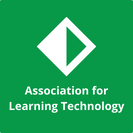
In the light of the coronavirus pandemic, education has been rapidly transformed by the increasing necessity to deliver remote learning and teaching, and consequently, online assessment practices. Assessment, either formative or summative, is an integral part of teaching and learning, and that holistic approach demands alignment of tools and modes of education experience and delivery, and continuity of technological support from the beginning to an end of the course. While e-assessment has been a norm in Scandinavia for almost a decade for good reason (see Online Assessment: Why We Want It in the 21st Century Classroom), the ongoing emergency seems to have sparked the UK Higher Education sector, in particular, to start catching up in accelerated innovation cycles.
ALT Summer Summit 2020 is a great place to discuss this topic because Educational Technologists and TEL centres rightfully play a central role in setting up and leading the implementation of the new processes that involve digital exams. High-stakes digital exams require specialised assessment software, as proctored quizzes in LMS/VLE are not a good long-term solution (see What is a difference between an assessment platform and a VLE/LMS).
One of the biggest challenges in getting these new workflow processes to work effectively is onboarding and training both staff and students. Where to start, how to build up best practices and teams, and how to get the trust of people whom you are trying to support? Learning Technologists have encountered these questions before, whenever introducing new technologies to their organisation. What makes e-assessment implementation projects especially worthy of careful consideration is not their novelty but the scale of impact on the entire organisation, teaching and learning standards, and the variety of stakeholder perspectives that need to be taken into account. Even when the benefits are evident and user experience is excellent, adaptation and getting people’s trust takes time. Just as with online learning, assessment technology on its own is not enough - it needs to be embraced, facilitated, and driven by humans.
It is important, and a relief, to remember that you are not alone, and even though you are a pioneer in your organisation, there are strategies for evangelising e-assessment that are proven to work. At Inspera, we have over two decades of experience supporting educational institutions in their migration and transformation of assessment and have worked on hundreds of implementation projects. We also have over 80 trusted partners who have gone through the journey you are on or you are about to embark on. Read on to get some inspiration for how to best engage your colleagues and students in the adoption of digital exams in these exciting times for learning technologies.
1. Learning from the community of peers
Just like ALT is an invaluable community for Learning Technology professionals, there are several professional associations (e.g. AHE network, eAA, AEA-E), conferences, and online communities that are specialising in bringing together educators interested in assessment technology. We at Inspera are proud to have co-hosted Digital Examinations Forum with the University of Bath. Meet our university partners from the UK and abroad, and hear their experiences on “Achieving teaching and learning excellence with e-assessment” by catching up with the webinar series. Nurturing a community of our partners has been a great source of creativity and peer-to-peer support over the years, and we are looking forward to perhaps welcoming you one day.
2. The value of internal communications
Internal communications coming from TEL centres targeting students and staff are vital both before, during, and after the exam period. Take some inspiration for formulating pedagogical recommendations for e-assessment use in the time of pandemic from University of Bergen (for communicating with academic staff), or giving guidelines on how to prepare for digital exams from NTNU (for communicating with students)
3. Test it out
Take the pressure off by piloting the assessment software before committing to a bigger roll-out. There are many benefits in doing this, as you will learn how to customise the workflows and options for your organisation, and use these lessons as guidelines for future improvements. Here you can see the key insights from the pilot projects with Inspera Assessment platform from the University of Oxford and the University of Bath.
Even if you’re already in the implementation phase with your e-assessment project, students and staff would feel more comfortable if they can have a practice environment or mock exams before the actual exam day, as our partners recommended. This could also allow you to spot the gaps, answer questions, align departments and administration, and offer reassurances without the time constraints. Doing so, you could be continuously building up your internal knowledge base of best practices.
4. Listen to your stakeholders' feedback
Just as we are valuing student feedback to courses, you can learn a lot about how to meet your project’s objectives by engaging closely with your colleagues and students. This can be done regularly in a workshop environment, centralised or de-centralised by departments. As said above, it is all about the humans behind the screens, and investing in getting to know their needs and concerns will be of great help to your project.
At ALT Summer Summit 2020, Inspera is proud to sponsor Session 10: “Focus on students”, where you can hear more about student perspectives concerning assessment and other issues, such as the impact of evolving student demographics on delivery of hybrid course delivery.
5. Engage with your assessment provider
Your assessment provider is an excellent source of support and information. At Inspera, we offer training sessions, webinars, and forums that are lead by our Implementation Specialists and Consultants, even on pilot projects. Looking at the bigger picture, your assessment provider can help you work on integrating e-assessment with other workflows and EdTech tools your faculty and students have at their disposal. Contact us to learn more about how we can help you get started.
Author: Dr Anja Sisarica, Strategic Relations Manager, Inspera Assessment
Bio: Dr Anja Sisarica joined Inspera as User Research and Product Strategy consultant in 2017, and since 2020 she took a role of Strategic Relations Manager. Working closely with partner institutions and researching their experience with Inspera Assessment, she has been evangelising empathy for the users, sharing insights both internally and externally, and curating new programme initiatives. With a background in Computer Science, Anja holds a PhD from City, University of London (2015) in Creativity Science and Human-Computer Interaction Design. Her professional interests also include service design; design thinking; innovation management; game-based learning; requirements engineering; and creativity applications in business. She is currently based in Milan, Italy; whilst Inspera is headquartered in Oslo, Norway.
Inspera are one of the sponsors for the Online Summer Summit 2020, exploring Learning Technology in a time of crisis, care and complexity. Organised by ALT as the leading professional body for Learning Technology in the UK, the Summer Summit will bring together leaders, researchers and practitioners from across sectors. With a packed programme over 2 days we will explore the themes of crisis, care and complexity with an international line up of featured speakers, practical sessions and panel discussions on topics ranging from assessment to student well being. To register from just £49, visit the Online Summer Summit website.
